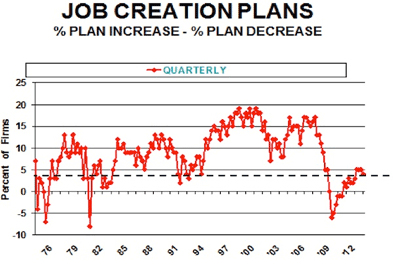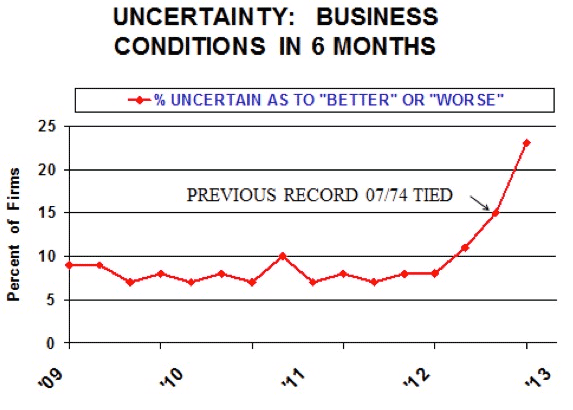One interesting story buried under all the other economic news is the fact that the US manufacturing sector is starting to make a comeback, which could be very good news, writes John Mauldin of Thoughts from the Frontline.
Just as agricultural output per worker has increased dramatically over time, I think that in the next 40 to 50 years, we will see massive gains in manufacturing output without an accompanying large increase in manufacturing jobs.
Companies are beginning to bring manufacturing back to the US because automation, robotics, and other new technology make it cheaper to manufacture products locally than to use inexpensive labor in other countries. I am told that Foxconn (in China) is beginning to use robotic manufacturing lines. When Foxconn is turning to robots rather than cheap labor, you know there is a revolution in the offing.
Yet even the manufacturing jobs that are left will not demand a "college degree." They will require serious skills and technical know-how, but that is different from the typical college degree. That is not to say college education will not be useful, but it is increasingly going to have to be an education that has a focus and goal of a marketable skill.
What is going to be needed is the creation of brand-new industries, as well as the unleashing of the entrepreneurial skills of the younger generation. Small business is the engine of growth for jobs.
It seems that all politicians can do is talk about the need to create jobs, yet the reality is that government doesn't create jobs. It can create the conditions in which jobs are created, but it is up to the individual businessman (or, increasingly, businesswoman) to make a decision to hire additional workers.
My friend Bill Dunkelberg is the chief economist for the National Federation of Independent Businesses. He's been doing regular surveys since at least 1974. His latest monthly survey shows that businesses are not terribly optimistic in terms of their plans to increase employment, which should be no surprise. The number one problem? Uncertainty.
Let's hope that our political leaders can give us a little more certainty and that it will not be the certainty of a recession. David Krone (Senate Majority Leader Reid's chief of staff) felt, in our interview for the Summit last week, that it was only 50-50 that a deal would be done to avert the fiscal cliff.
He was rather adamant that they would rather go over the cliff than kick the can down the road on the deficit. Not that it couldn't be fixed later...
I should note that both congressional chiefs of staff acknowledged they have been working for weeks prior to the election to come up with solutions to the cliff. These are the guys (along with their counterparts) responsible for much of the detail that will come out of the negotiations. They don't get interviewed often, and that is a shame.
It makes you feel better about the country to know there are people who care enough about our future to work with each other responsibly, even if they don't agree on the path we must take.
Read more Thoughts from the Frontline here....
Related Reading:












